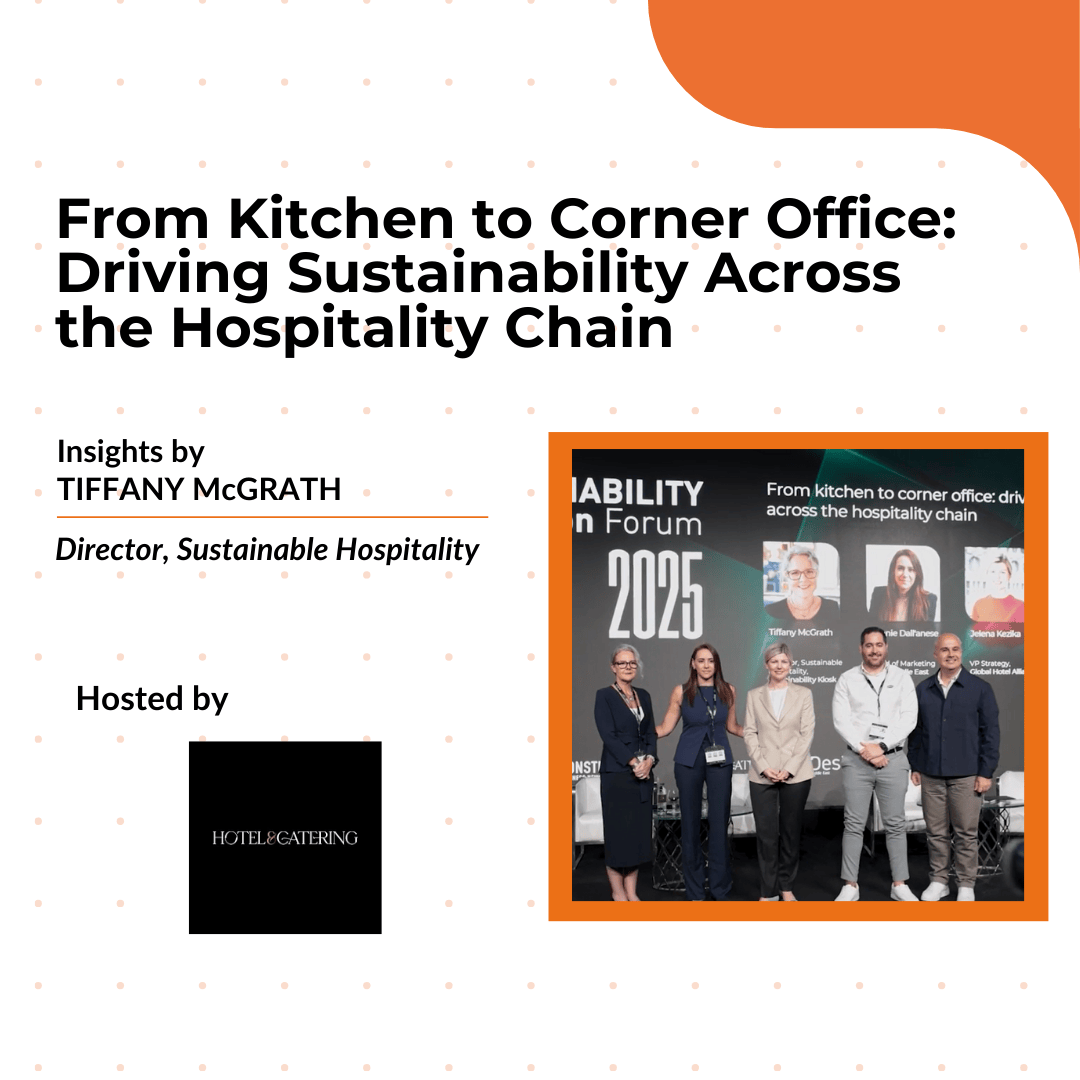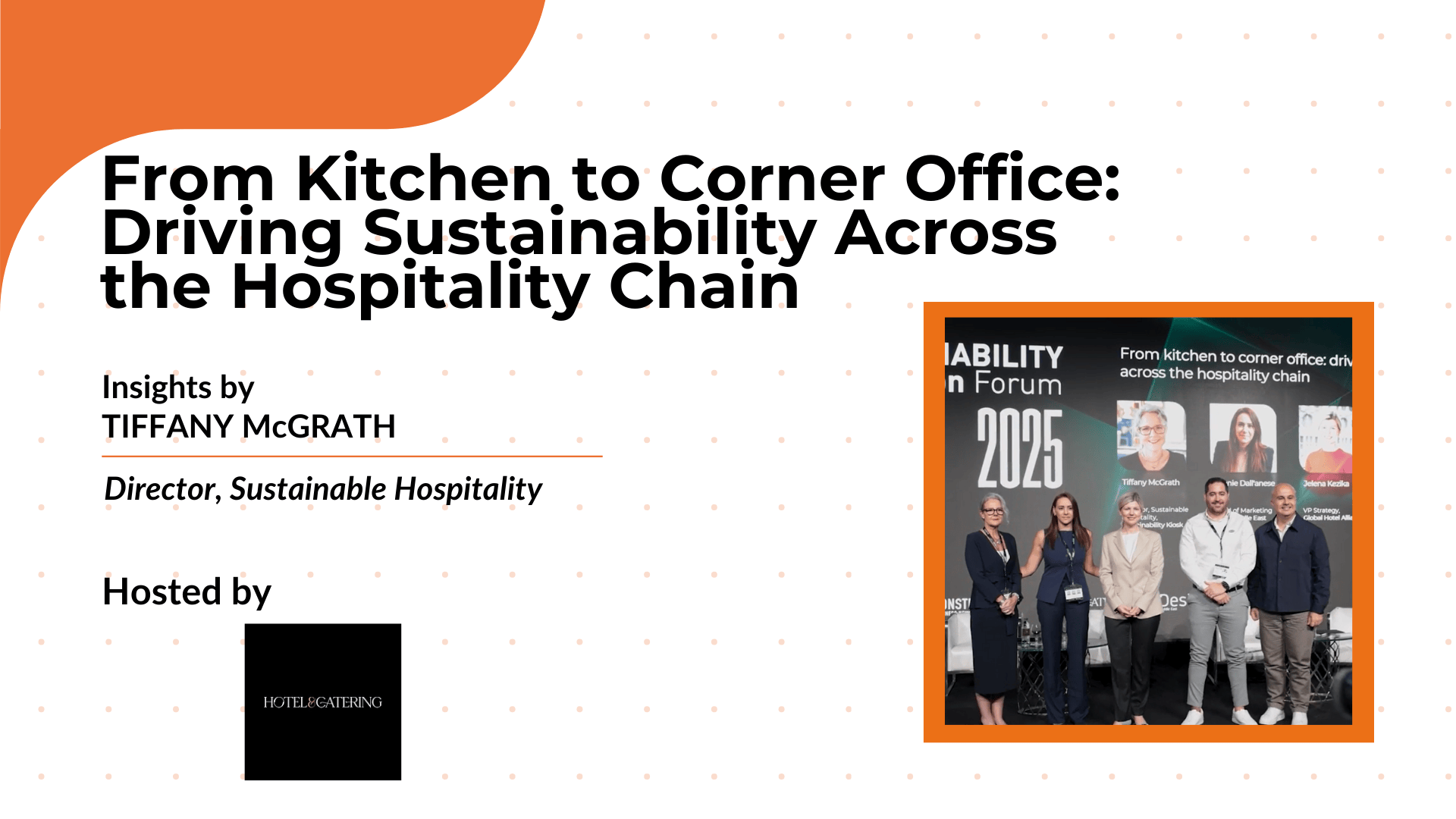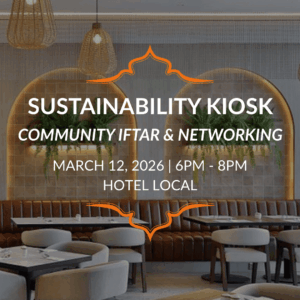From Kitchen to Corner Office: Driving Sustainability Across the Hospitality Chain
By Tiffany McGrath
Director, Sustainable Hospitality
On Friday, 29th August, I had the privilege of speaking at the Sustainability Innovation Forum 2025, held at the beautiful Al Habtoor Palace in Dubai. The panel I joined, titled “From Kitchen to Corner Office: Driving Sustainability Across the Hospitality Chain,” brought together a group of hospitality leaders to explore how our sector can move beyond pledges and buzzwords to achieve measurable impact.
Cutting Through the Noise
In hospitality, sustainability is a word that’s often overused. It sits alongside terms like local, organic, and vegan, yet guests aren’t always sure what it really means. This creates a risk of greenwashing, fatigue, and, ultimately, missed opportunities to make a difference.
As a panel, we agreed: if sustainability is to be a meaningful driver of change, it needs to be grounded in three things:
- Measured: Track energy, water, waste, menu composition, and—where possible—pursue credible certifications.
- Embedded: Make it part of every role and every decision, not something managed by a single department.
- Communicate the Why: Data shows what we do, but stories explain why—and it’s the why that resonates with both guests and teams.
A Business Strategy, Not a Cost
One of the strongest messages of the day was that sustainability is not a cost—it’s a business strategy. Done right, it builds efficiency, resilience, and profitability.
We discussed how certifications provide an important roadmap: they create a structured framework that encourages hotels to look holistically at everything from purchasing and cleaning to energy and water efficiency. While not every restaurant or property has the budget to pursue certification right away, the principles within them can serve as a guide for action. And even without certification, operators can take immediate steps by measuring the basics—food waste, energy use, and water consumption.
Building Capacity Across the Industry
We also explored the need for capacity building: training, education, and awareness at every level. Sustainability must be something that staff understand and embrace, from back-of-house operations to executive decision-making.
This extends to broader questions too: Can we live sustainably in cities like Dubai? The answer is yes—with efficient building operations, smart procurement, and controls that balance comfort with reduced environmental impact.
Why Design Matters
Another powerful takeaway was the role of design in sustainability. From energy-efficient kitchen equipment to thoughtful fit-outs, these choices improve staff comfort, reduce costs, and deliver long-term operational benefits. Design decisions are not just aesthetic—they’re strategic.
Reflection
Speaking on this panel reinforced a key truth for me: sustainability is no longer optional in hospitality—it’s essential. From chefs at the kitchen table to executives in the boardroom, every part of the value chain has a role to play.
It’s not about adding extra work; it’s about reshaping how we operate and embedding smarter, more sustainable practices at every level. When approached this way, sustainability isn’t just better for the planet—it’s better for business.
Thank You
A heartfelt thank you to the organizers of the Sustainability Innovation Forum 2025 for creating such an inspiring platform, and to my fellow panellists for the insights and collaboration they brought to the discussion. It was an honour to share the stage with leaders who are driving real change in our industry.




